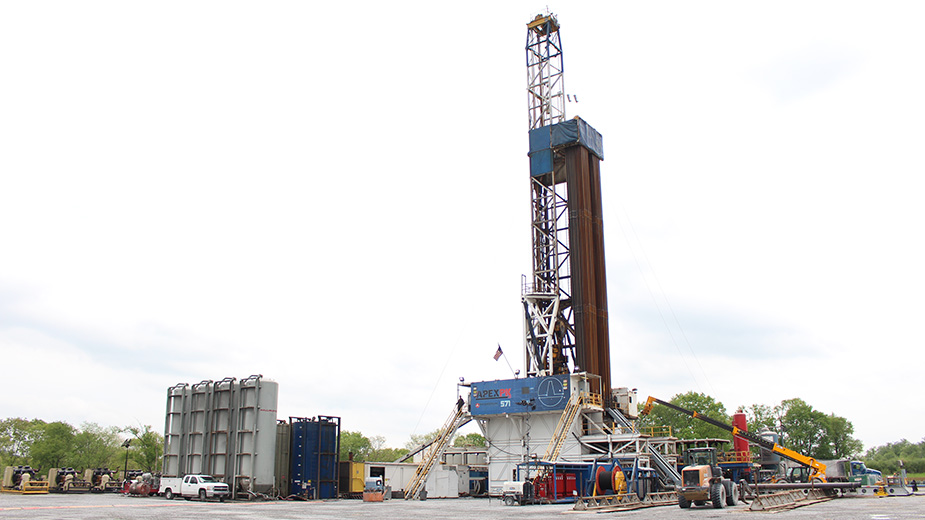OOGA Chief: ‘Mechanisms in Place’ to Deal with Spill
YOUNGSTOWN, Ohio – The president of the organization that represents oil and gas drillers in Ohio offered his assurances today that the state has adequate resources to address issues such as the injection well spill discovered last week in Vienna Township (READ STORY).
David Hill, president of the Ohio Oil and Gas Association, said he understands the concerns of the people affected by the spill. “I can only imagine what they’re going through. It’s unfortunate, but what I would say to those people is there are systems in place,” he said.
Those resources include the Ohio Department of Natural Resources and the Ohio Environmental Protection Agency, both of which are on site, Hill continued. “They’re doing it, they’re remediating it and they’re going to force the operator to remediate that,” he said. “There are mechanisms in place to deal with that.”
Hill’s comments came during visits to the Youngstown Warren Regional Chamber and media outlets this morning during which he pressed his organization’s case against the proposed increase in the severance tax to 6.5% in Gov. John Kasich’s budget.
Kasich, in his State of the State address, proposed the increase in the severance tax to pay for cuts he proposed in other state taxes, including the personal income tax. However, Hill said, the severance tax was conceived as a mechanism to fund the regulatory body that oversees the industry, ODNR. “It was never perceived as doing anything else,” he remarked.
The governor should be focused on encouraging businesses to come to Ohio that can take advantage of the state’s oil and gas resources for energy to run their operations as well as for the raw materials that can be extracted from the oil and gas, he said.
“When I think of Youngstown, I think of people that make things,” he told Business Journal reporters.
Hill characterized the state of the industry as “distressed” due to fallen oil prices. The number of active rigs in the state has halved due to the plunge, from the high 50s to the mid-20s. “Our membership is very concerned about the state of the industry at this point,” he said.
“This is a cyclical business, as most commodities are. Market forces are at work. This is raw capitalism,” Hill continued. “There’s not much we can do to rectify that other than run our operations more efficiently, encourage legislators to not encumber us with excessive taxation or regulation.”
Even without an increase in the severance tax, the downturn in energy prices is “having a real impact on people that have nothing to do with the oil and gas business,” he said. That impact includes layoffs at local steel mills that serve the industry.
Hill could not predict how long energy prices might remain low. After the 1985 decrease, prices did not recover for 15 years, while a downturn in 2008 only lasted about 15 months, he said.
The Regional Chamber’s Government Affairs Council has not taken a position on the severance tax increase. Members want to see how the issue plays out in the legislature, said Guy Coviello, the chamber’s vice president of government affairs and media. “It is possible for the GAC to consider making a recommendation later,” he said.
Pictured: Workers clean up at the spill site in Vienna Township.
Copyright 2024 The Business Journal, Youngstown, Ohio.


